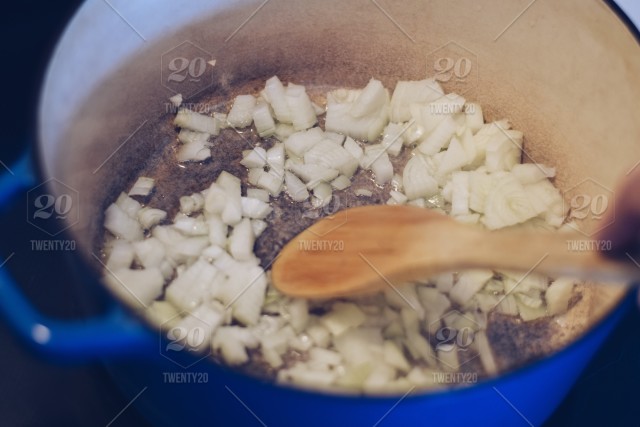Dear Teacher, Explore Story Telling While Teaching!
The importance of story-telling cannot be overemphasized when talking about effective teaching. A good story teller creates an unforgettable imagery in the minds of the students. It allows them see the picture clearly while also educating them.
How about reading the conversation between two neighbors?
‘‘I sat on the corridor of my house, trying to cool off and relax from the day’s stress. I couldn’t help but perceive a very pleasant smell that filled the atmosphere. Out of curiosity, l decided to find out where it was coming from. I traced the smell right to the entrance of my neighbour’s kitchen.
Mrs Oluwalonimi Benson, often referred to as Mama-chef by her co-neighbours, loved cooking. A name she got because of her style of cooking and her tendency for using assorted spices.
She had her back to me while pouring ingredients into a steamy pot as l approached. She was humming and from her body language, l could tell she really loved what she was doing, and l was ready to get my share of whatever she was preparing.
‘This food must not pass me by’, I said jokingly. She turned, laughed and replied, ‘When did you become a joker?’
‘The aroma of your food must be turning me into one’, I said.
She smiled and welcomed me in, to have a look. I glanced at the pot and was amazed.
‘In all sincerity ma’am, how come the smell of your food usually fills the place without even using curry, the common spice?’ l enquired.

She smiled and said, ‘It’s all thanks to the magic of onion.’
‘ Onion?’ I echoed as my gaze travelled to a bowl of pintsized chopped onions waiting for their turn in the steaming pot.
‘What has onion got to do with the irresistible aroma flying all over and why do you place so much emphasis on onion?’ I questioned further.
‘It is because you do not know the essence of onions in food and in the body.’ She supplied.
I looked at her reflectively, unable to process what she said.
‘You seem surprised?’ she asked.
‘Well yes’, l said. Asides adding to the taste of food and giving it a pleasant aroma, is there any other thing about onion I do not know?’
‘Well, the benefits and functions of onion in the body are immeasurable but I’ll tell you a few of them’, she said enthusiastically.
She went on to narrate her findings in the course of her research on onions.
‘As I read from research, do you know that onions contain flavonoids? These flavonoids are unique compounds found in plants that also have health benefits.
They contain majorly the bioactive compound quercetin, which has been implemented as an antioxidant, anticancer and anti-inflammatory compound.
There is a researcher named Jarzabkowski. He said onions encourage a healthy heart in many ways, including lowering blood pressure and heart attack risk.
‘Wow! Those are interesting facts. But I’ve always wondered why onions provoke tears from the eyes when they are sliced. Can you shed light on this?’

Onions
‘It is because they have sulphur compounds which contain an acrid, volatile principle. That is what stimulates the tear glands and the mucous membranes of the upper respiratory tract.’ she said, smiling at my blank look.
‘Interestingly too, when you consume onions, it increases oxylipins that help your body system regulates blood fat levels of cholesterol.’
With the look on your face, you must be wondering what Oxylipins are. Let me help you, they are the source of polyunsaturated fatty acids (PUFAs) in the body. And those PUFAs are very healthy and highly beneficial.’
‘I can now see ma’am, that it’s not just food you love, you are also a food doctor.’ She laughed heartily.
‘What about the vitamins and mineral constituents contained in onions?’ l asked eagerly, wanting to learn more.
‘Of all the healthy compounds contained in onions, two stand out: sulphur and quercetin – both are strong antioxidants.
They each have been shown to help neutralise the free radicals in the body. And protect the membranes of the body’s cells from damage.’ She said, pouring the chopped ingredients into the pot.
Distracted by the colourful picture staring at me in the pot, l went on offhandedly.
‘I read onions contain 11 to 12 milligrams of vitamin C and about 18 to 20 percent of our daily needs.’
I could tell she was impressed as she moved to a corner to pick up a bowl full of mashed potato.
‘Yes, and it helps your immune system function optimally and keep your skin and hair healthy.
Also, they contain 30 to 32 milligrams, or 8 percent of your daily requirement of folate, B9 which aids cell growth,’ she finished.
After about 30 minutes of chatting, she said, ‘Honestly, the list is endless. Do me a favour young lady, find out a food you can also teach me when next we see.
The food is ready and you’re welcome to join me,’ she said placing a hot plate of porridge on the kitchen table.
I pulled a chair and sat down.
Thanks a lot, ma’am. I really enjoyed this mini-lecture. I will also tell my friends and colleague about the benefits of onions. l assure you, l will be the tutor, teaching you, next time we meet.
She smiled cheerfully and said; ‘I’ll be looking forward to it’.
So, what have you learnt from this story?
As a Biology teacher, does this make sense to you?
Please share your thoughts.








